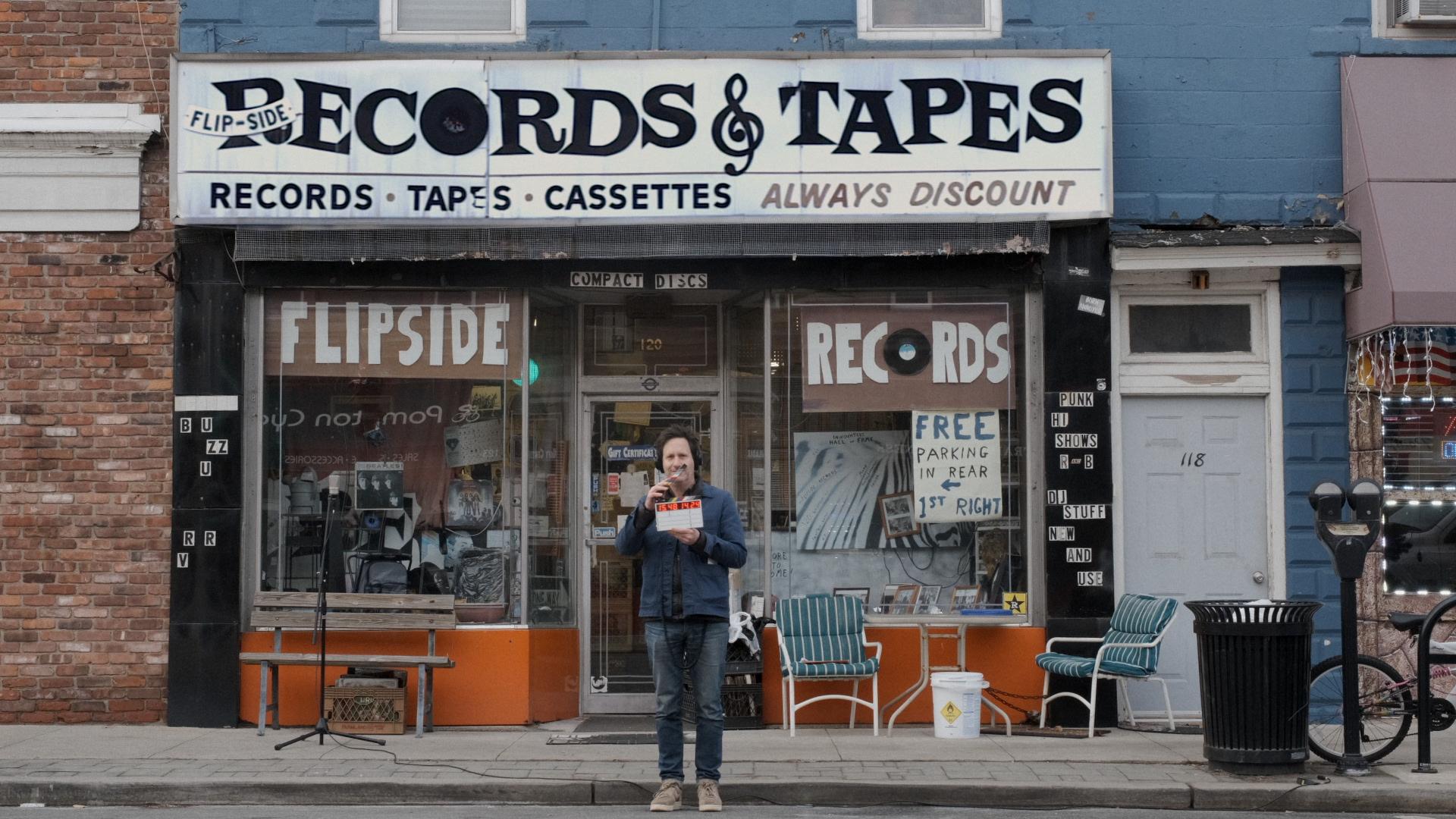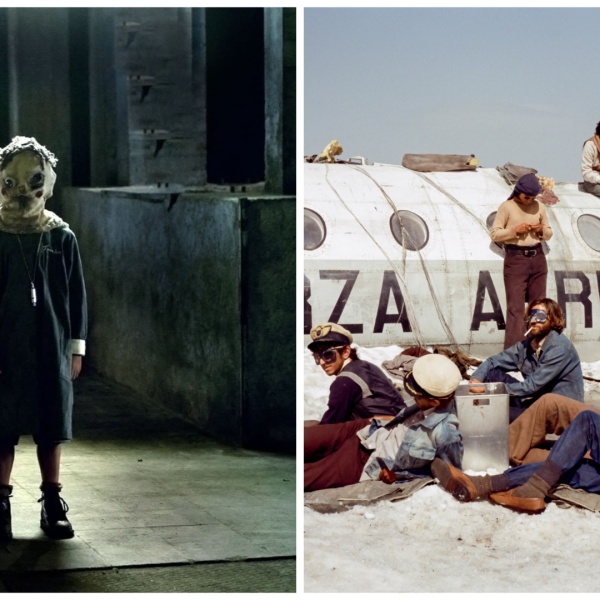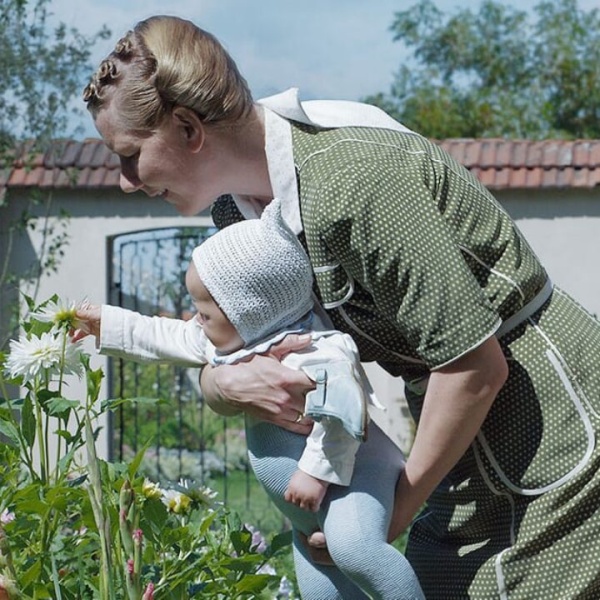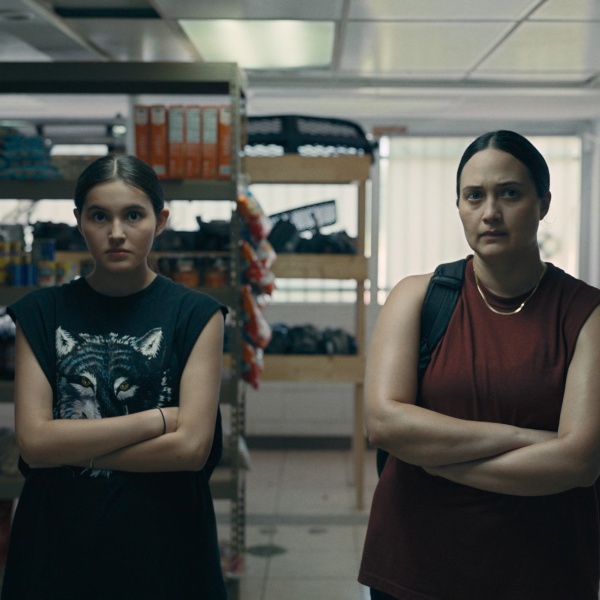Fifteen years ago, writer/director Judd Apatow hired documentary filmmaker Chris Wilcha to film a behind-the-scenes movie about the making of “Funny People” and changed Wilcha’s life forever when the documentarian moved from New York to Los Angeles to work on the project. After he was done with the shoot, Wilcha had a hard time finding documentary work and ultimately settled into a life of directing commercials, returning to his first love of non-fiction filmmaking only sporadically as he accumulated hard drive after hard drive of footage from unfinished projects. Apatow was stunned to learn what an effect he had had on Wilcha’s life. “I didn’t even know that he moved to L.A. for the job,” Apatow told IndieWire, “and that his mom has been mad at me for decades.”
The unexpected connections between people and the unknown ways in which they affect each other are central to Wilcha’s latest documentary, “Flipside,” a deeply moving and spectacularly entertaining movie that’s also about the costs and rewards of a creative life and the struggle to deal with the moment where one realizes that the life they’re living is different from the life they imagined. It’s about a lot of other things, too, and the miracle of Wilcha’s craftsmanship is that he has managed to make a film that feels both streamlined and endlessly complex; it would be hard to think of a movie more jammed with thought-provoking ideas, yet “Flipside” never feels rushed or overstuffed. It’s a model of concision, clarity, and depth, and what’s all the more remarkable — and ironic — about it is the fact that it began life as a movie that wasn’t supposed to exist at all.
Several years ago, Apatow (who is an executive producer on “Flipside”) introduced Wilcha to his mentor David Milch, the legendary television writer who created “NYPD Blue” and “Deadwood.” Milch hired Wilcha to make a documentary about his friend, jazz photographer Herman Leonard, who was dying at the time. When Leonard passed away before Wilcha had enough footage for a movie, the documentary became another in a series of unfinished projects, and Wilcha felt guilty until he learned that Milch never had any intention of finishing the documentary — he hired Wilcha just so that Leonard would feel seen in his final days, as a camera crew followed him around and recorded his observations and experiences.
“I was bummed that there would be no film, but I was thrilled to be a part of it,” Wilcha told IndieWire. “There was something so conceptually remarkable about Milch doing this, the idea that he hired a documentary crew to lavish this person with curiosity and attention before they died. And I was really leaning into it, because I didn’t know that it was all an act of performance art.” Initially, the hard drives with Leonard’s footage all went into the same vault with Wilcha’s other incomplete documentaries, movies on radio host Ira Glass, writer Starlee Kline, and others that, for one reason or another, never got finished as Wilcha’s life was taken over with raising a family and making a living in advertising. At one point, Wilcha considered taking these fragments and turning them into episodes of a TV documentary series, but he found no takers: “Exactly nobody was interested in subsidizing or producing that idea.”

Wilcha decided to put together a feature film in which the record store he had worked at as a teenager would serve as an anchor; Wilcha would tell the story of that store and its proprietor, a man lovingly overseeing his less and less profitable labor of love as the world changed around him, and by extension tell his own story and see if he could bring in the stories of other people he had filmed. It wasn’t until the editing process that the director knew the conceit would work. “We started to realize that some of these characters seemed to talk to each other, that there are echoes between seemingly unrelated stories,” Wilcha said. Indeed, as “Flipside” progresses, one of the great pleasures for the viewer is the way in which one new theme after another emerges and resonates with the others in unpredictable but affecting ways; the cumulative effect is to create an ambitious meditation on the passage of time and all the ways we try to control it.
“Every time you would talk to David Milch, he would quote this poem by Robert Penn Warren called ‘Tell Me a Story,’” Apatow said. “It reads, ‘Tell me a story in this century and moment of mania. Tell me a story. Make it a story of great distances and starlight. The name of the story will be time, but you must not pronounce its name. Tell me a story of deep delight.’ And that’s really what the movie is about. It’s about time and the way we don’t want it to pass and the way we hold on to things so that we can feel like we’re going to live forever or can relive these special moments in our lives.”
Trying to hold onto special moments is an idea that dovetails with another key subject of “Flipside,” which is hoarding. Some of the film’s funniest and most touching moments revolve around people who can’t let objects go, from photographs and recordings of loved ones who are gone to pilfered hotel room soaps and shampoos. To the people who hoard, it’s all meaningful, an idea Wilcha knew Apatow would understand. “He’s a fellow hoarder of artifacts and objects,” Wilcha said, to which Apatow added that the “Funny People” documentary itself was a form of hoarding. “I knew it was going to be a once-in-a-lifetime special experience to work with Adam [Sandler],” Apatow said. “I thought it was an opportunity to examine our friendship and the comedy world and how it’s changed. I just wanted to track what was happening in our lives in that moment.”

Wilcha notes that the whole notion of holding on to artifacts and archives relates to one of the film’s most powerful storylines, which is that of David Milch himself and his battle with Alzheimer’s. “One thing the movie was persistently about was memory, and we’re talking to Milch at this moment in his life when his memory is disappearing,” Wilcha said. “It was a reminder of how fragile all of it is, that even hoarding at some point loses meaning as the saving and keeping of memory disappears.” One of the most beautiful aspects of “Flipside” is the fact that by visiting Milch in his assisted living facility and making him the center of attention, Wilcha and Apatow return the favor Milch paid Leonard. “I think he really enjoyed us seeing him and shooting him. It was an exact echo of when I shot Herman, and there was something sort of beautiful about that.”
“David’s relationship with time is very different,” Apatow concluded, “and he’s been very eloquent about what that experience is like. When I visit David, it’s a reminder that all that matters is this moment. Even if it’s not remembered. The love you share, by being present with somebody, that has a very special value. Even if it disappears into time. That’s what I find very moving about the friendships Chris had with the people at the record store, and how much he cares and worries about them and is also tracking their lives. Because we can hold on to all our stuff, but really all that matters are these special moments with each other.”
Oscilloscope releases “Flipside” in select theaters May 31.




